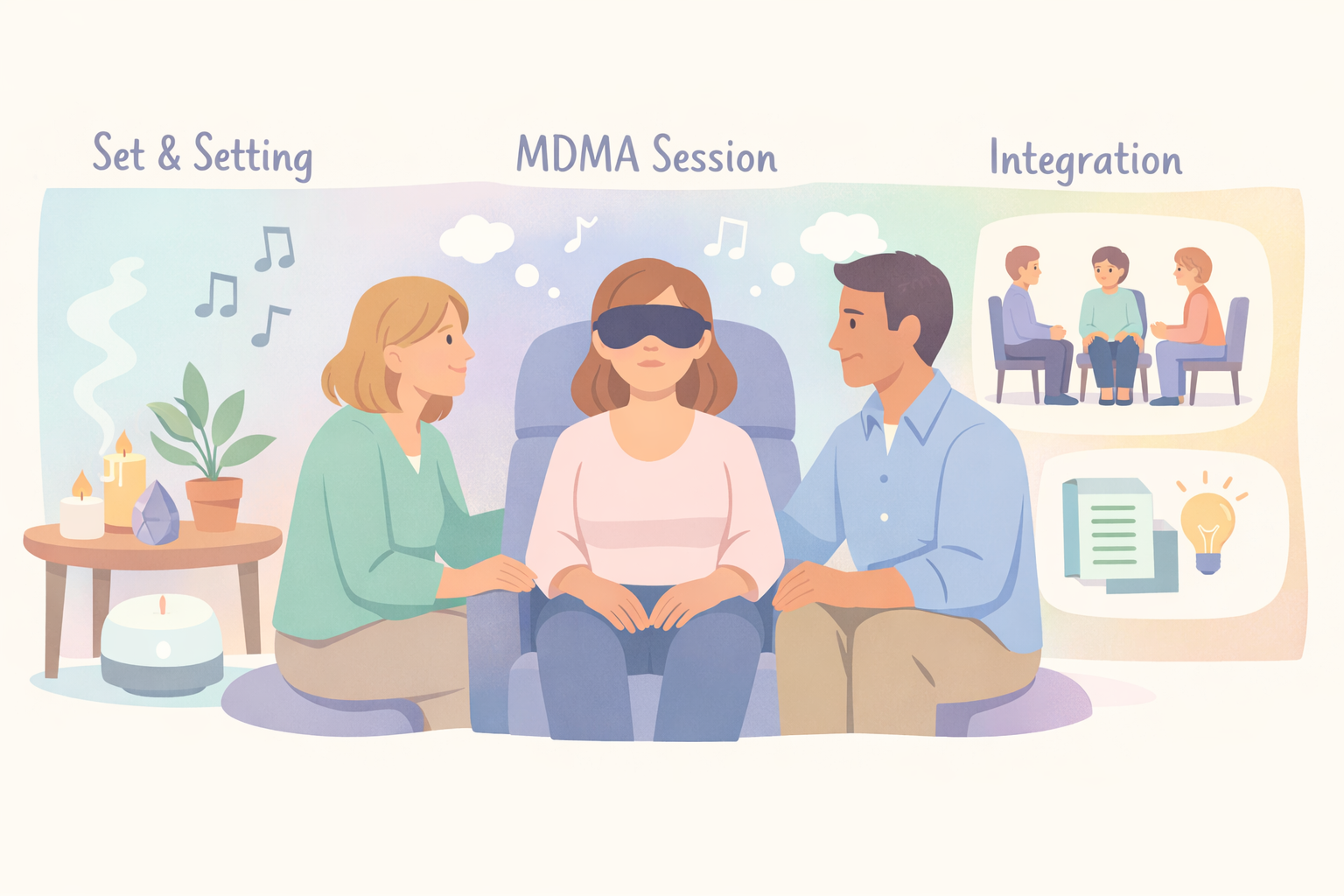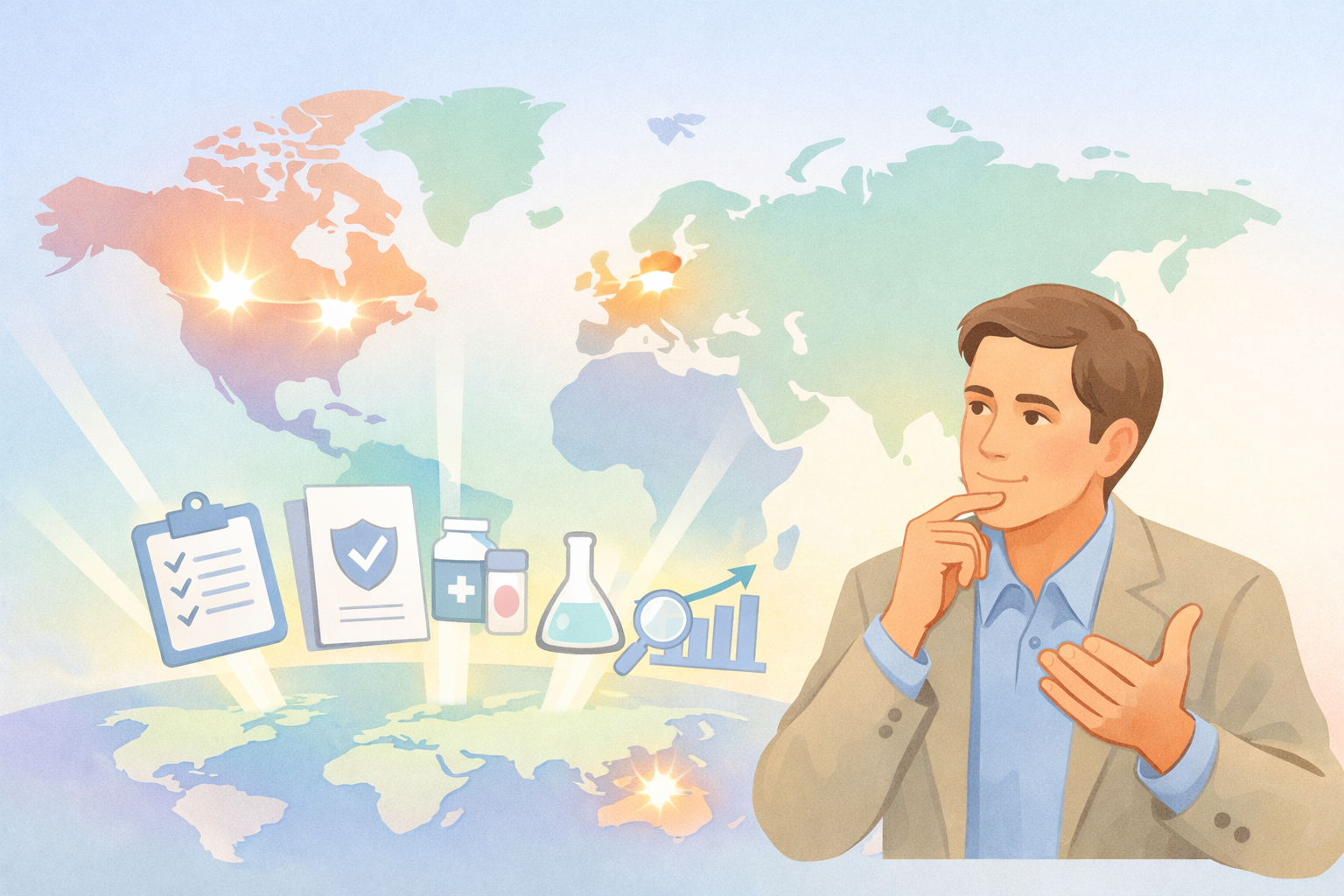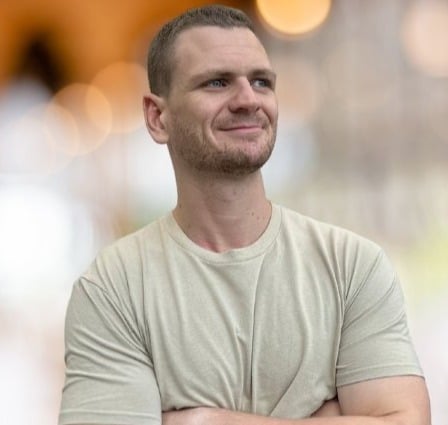You hear the words “Molly” or “Ecstasy, and your mind conjures up images of bottle service and low-lit dance floors punctuated by dance music. It’s a popular nightlife drug for its ability to boost confidence and external senses. But this club drug—clinical name: 3,4-Methylenedioxymethamphetamine (MDMA)—has become equally popular in the research community; scientists are exploring it as a therapeutic tool to help people, from everyday Joes to veterans, release trauma. The major hurdle is that MDMA is classified as a Schedule I drug in the United States, and MDMA therapy isn’t currently legal (outside of research trials)
Still, as psychedelics become less taboo and more mainstream, some people are interested in MDMA as a form of therapy. And for those folks, MDMA therapy retreats allow people to explore the potential healing benefits of MDMA—legally and safely. Here’s what you need to know.
MDMA As a Clinical Tool
Therapists in the early 1980s described MDMA’s effects as “a softening of the armor around pain,” a phrase later popularized by Ann and Alexander Shulgin in their 1991 book PiHKAL and echoed in the 1986 findings of George Greer and Requa Tolbert, whose research—based on sessions from before prohibition—showed reduced fear and greater emotional openness in their subjects. But despite this promising work, the U.S. classified MDMA as a Schedule I substance in July 1985, and experiments went underground.

Fast forward to the 2000s: the Multidisciplinary Association for Psychedelic Studies (MAPS) began a long campaign to re-establish MDMA as a medicine. Their clinical trials, culminating in the MAPP1 and MAPP2 Phase 3 studies, found that 67 percent of participants who received MDMA-assisted therapy no longer met the criteria for PTSD, compared with the 32 percent who received therapy and a placebo.
Neuroscientist Robin Carhart-Harris has called MDMA “an amplifier of trust.” His brain-imaging work at Imperial College London, alongside Jan Ramaekers at Maastricht University, found that after people took MDMA, they reacted less defensively to painful memories and described feeling more open and connected. Ramaekers, who has studied the drug for decades, says the effects of MDMA are stable, but only with proper medical screening and structure.
That structure is precisely what’s missing in most underground or “retreat” settings, where purity, dosage, and facilitator experience can vary. MDMA may help people access empathy and trust, but without the proper preparation, guidance, and follow-up, those breakthroughs can quickly turn into risks.
What an MDMA Therapy Session Looks Like
You can’t—well, you shouldn’t—take MDMA any time, any place, and expect your mind to open and trauma to disappear. That’s not how it works. A term you hear and read a lot about in psychedelic literature is “set and setting”, which describes the mental state and physical environment a person is in when embarking on a psychedelic journey. One’s Set and setting have a significant impact on how effective a trip is, and establishing it takes time and intention.

That’s exactly why patients undergo several preparation sessions before ingesting MDMA (or whatever psychedelic they’re taking). According to MAPs therapy manual, during the dosing session itself, two trained therapists—typically one male and one female—remain present for up to eight hours. Music plays softly. Eye masks are optional. The goal isn’t to trip, but to look inward.
As the 2017 MAPS therapy manual explains, MDMA creates a “window of tolerance” that lets people explore painful memories without becoming overwhelmed, and integration sessions help them carry those breakthroughs back into the real world.
The Legality of MDMA Retreats
The legal reality is that there are no legal MDMA therapy retreats.
It’s a Schedule I drug, meaning it’s illegal to possess and consume under federal law in the United States. Still, in 2017, MDMA was designated a “Breakthrough Therapy” by the FDA, fast-tracking research for medical trials. In 2024, the FDA declined another application to approve MDMA therapy, citing data and safety concerns.
The company behind the application, Lykos Therapeutics (formerly MAPS PBC), plans to resubmit with additional safety data. At the same time, several universities continue investigator-led studies on MDMA-assisted therapy for PTSD and eating disorders.
Elsewhere, the picture varies:
- Australia rescheduled MDMA in July 2023, allowing authorized psychiatrists to treat PTSD under strict regulation.
- MDMA is illegal in the Netherlands (though psilocybin truffles are legal). Yet, in a landmark report titled “MDMA /// Beyond Ecstasy,” the Dutch State Commission on MDMA recommended exploring large-scale naturalistic studies that could one day open supervised access.
- Canada allows limited special access for patients with severe trauma.
The TL;DR is this: Though some countries allow MDMA use in strictly regulated clinical settings, any program offering MDMA therapy to the general public is operating illegally, or, at least in a legal gray zone.
So if Not MDMA, Then What?

While MDMA therapy awaits full approval, other compounds have entered legal or semi-legal frameworks in select countries. The most notable one is psilocybin, aka shrooms or magic mushrooms.
In the Netherlands, psilocybin truffles (the underground portion of the same fungus that produces magic mushrooms) can be sold legally. Retreats such as Beckley Retreats, Essence Institute, and Synthesis offer structured, research-aligned programs designed for personal growth, not medical treatment.
These programs borrow many features from MDMA therapy—thorough preparation, guided sessions, and post-ceremony integration work—but they’re legal retreats, focusing on mindfulness, creativity, and connection rather than diagnosing or treating psychiatric conditions.
Here’s a quick comparison chart of the popular psychedelic retreat programs. Note that while MDMA is listed below, it’s only in the context of clinical research. MDMA retreats marketed to the general public are illegal.
| Program | Substance / Legal Basis | Duration & Structure | Focus & Strength |
|---|---|---|---|
| Beckley Retreats (NL) | Legal psilocybin truffles | 5-6 day immersive; 3-week prep/integration arc | Deep inner work; small groups; science-aligned |
| Synthesis Institute | Psilocybin truffles | 7-week hybrid (online + retreat) | Integration and coaching depth |
| TripTherapie (NL) | Psilocybin truffles | 1-3 days | Accessible, small-group sessions |
| Ketamine-assisted Therapy | Medical ketamine (regulated) | Outpatient clinical | Medically supervised; lower intensity |
| MDMA-assisted Therapy | Schedule I (research-only) | 3 medicine sessions within a 12-week protocol | PTSD-focused, still investigational |
A Global Policy Turning Point
While clinical legality remains limited, the global conversation around MDMA is shifting fast. MDMA is becoming less taboo, with legitimate research backing up its healing properties. No longer just a club drug, the next chapter of MDMA: societal embrace. And it’s already being written.

The Dutch Beyond Ecstasy report marks a striking moment: a major government publicly recommending research-based access to a psychedelic substance, even as the U.S. steps back from approval. It’s cautious optimism rooted in science. Meanwhile, regulators in countries like Australia and Canada have also begun testing tightly controlled frameworks.
“The Netherlands has always balanced pragmatism with compassion,” notes Dr. Michiel van Elk, a cognitive psychologist at Leiden University who studies the effects of psychedelics in naturalistic settings. “The question is not whether these substances have potential—it’s how we create frameworks to use them responsibly.”
What to Ask Before You Book a Retreat
If you’re interested in MDMA therapy, then your best (and, legally speaking, only) course of action is to apply for clinical trials or forthcoming medical programs, such as those being explored in Australia. (MAPS clinical trial registry).
If you’re seeking personal growth, relationship healing, or deeper emotional understanding, legal alternatives like psilocybin truffle retreats offer a safer and more compliant environment.
Before attending any retreat, look for:
- Transparent legality: Does the retreat clearly state which substances are used and their legal status?
- Medical screening: Are heart conditions, medications, and psychiatric histories considered?
- Facilitator qualifications: Are guides trained in trauma-informed care?
- Integration support: What happens after the experience ends?
Frequently Asked Questions
Yes, but not for the general public. MDMA remains a controlled substance. Australia currently allows limited prescription use for PTSD under medical supervision. Elsewhere, it’s legal only within research trials.
Yes. Psilocybin truffle retreats in the Netherlands and ketamine-assisted therapy in medical settings are legal and structured alternatives that share some emotional and therapeutic mechanisms.
It reduces fear response in the brain’s amygdala and increases empathy, trust, and openness—allowing patients to reprocess trauma in a supported state.
Sources
- Carhart-Harris, R. L., Wall, M. B., Erritzoe, D., Kaelen, M., Ferguson, B., De Meer, I., Tanner, M., Bloomfield, M., Williams, T. M., Bolstridge, M., Stewart, L., Morgan, C. J., Newbould, R. D., Feilding, A., Curran, H. V., & Nutt, D. J. (2014). The effect of acutely administered MDMA on subjective and BOLD-fMRI responses to favourite and worst autobiographical memories. International Journal of Neuropsychopharmacology, 17(4), 527–540. https://doi.org/10.1017/S1461145713001405
- Grinspoon, L., & Bakalar, J. B. (1987). Psychedelic drugs reconsidered. Annals of Internal Medicine, 106(6), 929. https://pubmed.ncbi.nlm.nih.gov/2880946/
- Carhart-Harris, R. L., Roseman, L., Haijen, E., Erritzoe, D., Watts, R., Branchi, I., & Kaelen, M. (2018). Psychedelics and the essential importance of context. Journal of Psychopharmacology, 32(7), 725–731. https://doi.org/10.1177/0269881118754710
- Mithoefer, M. C., Mithoefer, A., Jerome, L., Ruse, J., Doblin, R., Gibson, E., Ot’alora G., M., & Sola, E. (2017). MDMA-assisted psychotherapy treatment manual (Version 8.1). Multidisciplinary Association for Psychedelic Studies. https://maps.org/wp-content/uploads/2022/05/MDMA-Assisted-Psychotherapy-Treatment-Manual-V8.1-22AUG2017.pdf
- Watts, R., & Luoma, J. B. (2020). The use of the psychological flexibility model to support psychedelic assisted therapy. Journal of Contextual Behavioral Science, 15, 92–102.
- Food and Drug Administration. (2024). FDA briefing document: NDA/BLA# 215455 midomafetamine – Psychopharmacologic Drugs Advisory Committee meeting June 4, 2024 (Document No. FDA-2024). U.S. Department of Health and Human Services. https://www.fda.gov/media/178984/download
- NPR. (2024, August 9). MDMA therapy on FDA decision for PTSD psychedelic treatment. NPR. https://www.npr.org/sections/shots-health-news/2024/08/09/nx-s1-5068634/mdma-therapy-fda-decision-ptsd-psychedelic-treatment
- Therapeutic Goods Administration. (2023, July 1). Change to classification of psilocybin and MDMA to enable prescribing by authorised psychiatrists. Australian Government Department of Health. https://www.tga.gov.au/news/media-releases/change-classification-psilocybin-and-mdma-enable-prescribing-authorised-psychiatrists
- State Commission. (2024, May 31). MDMA /// Beyond ecstasy [Report]. Government of the Netherlands. https://www.government.nl/topics/drugs/documents/reports/2024/05/31/mdma-beyond-ecstasy
- Health Canada. (2023, February 27). Requests to the Special Access Program (SAP) involving psychedelic-assisted psychotherapy. Government of Canada. https://www.canada.ca/en/health-canada/services/drugs-health-products/drug-products/announcements/requests-special-access-program-psychedelic-assisted-psychotherapy.html
- van den Brink, W. (2024, June 20). MDMA: Beyond ecstasy. Report of the Dutch State Committee on MDMA. Drug Science UK. https://www.drugscience.org.uk/mdma-netherlands-report
- Health Canada. (2023, February 27). Requests to the Special Access Program (SAP) involving psychedelic-assisted psychotherapy. Government of Canada. https://www.canada.ca/en/health-canada/services/drugs-health-products/drug-products/announcements/requests-special-access-program-psychedelic-assisted-psychotherapy.html
mdma-assisted therapy• Beckley Foundation• Latest Research• contemplative practices• meditation and psilocybin

Andrew Gutman
Andrew Gutman is a NASM-certified personal trainer and journalist with 10 years of experience covering fitness and nutrition. He’s the former fitness editor at Muscle & Fitness and was managing editor at BarBend, where he led coverage of the Olympics and World’s Strongest Man. His writing appears in Men’s Health, Business Insider, and Gear Patrol. Outside of work, Andrew trains in Brazilian Jiu-Jitsu, kickboxing, and bodybuilding—and is a proud stay-at-home dad to his first son.
-2-1.png)
